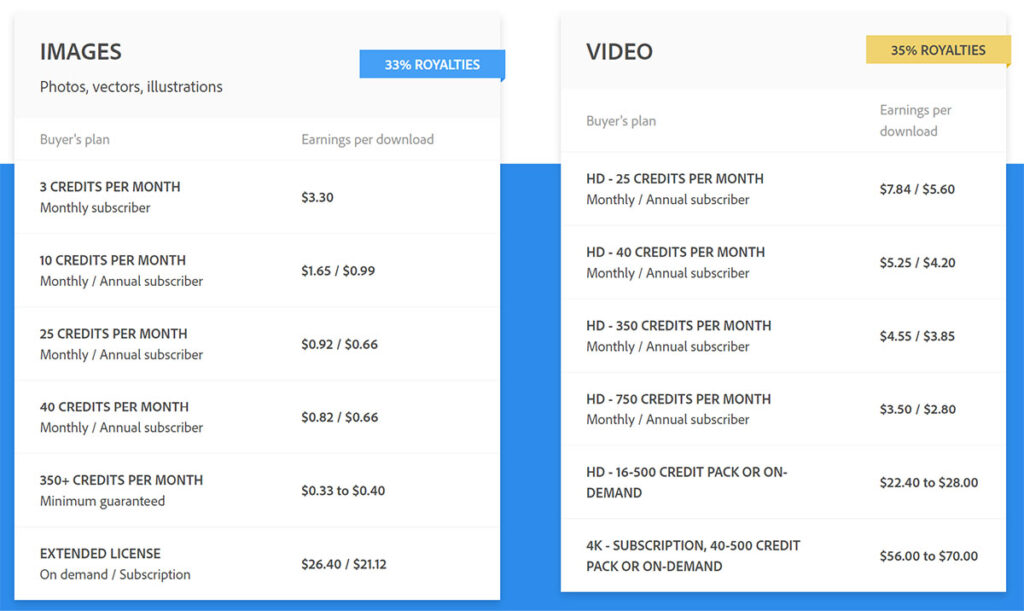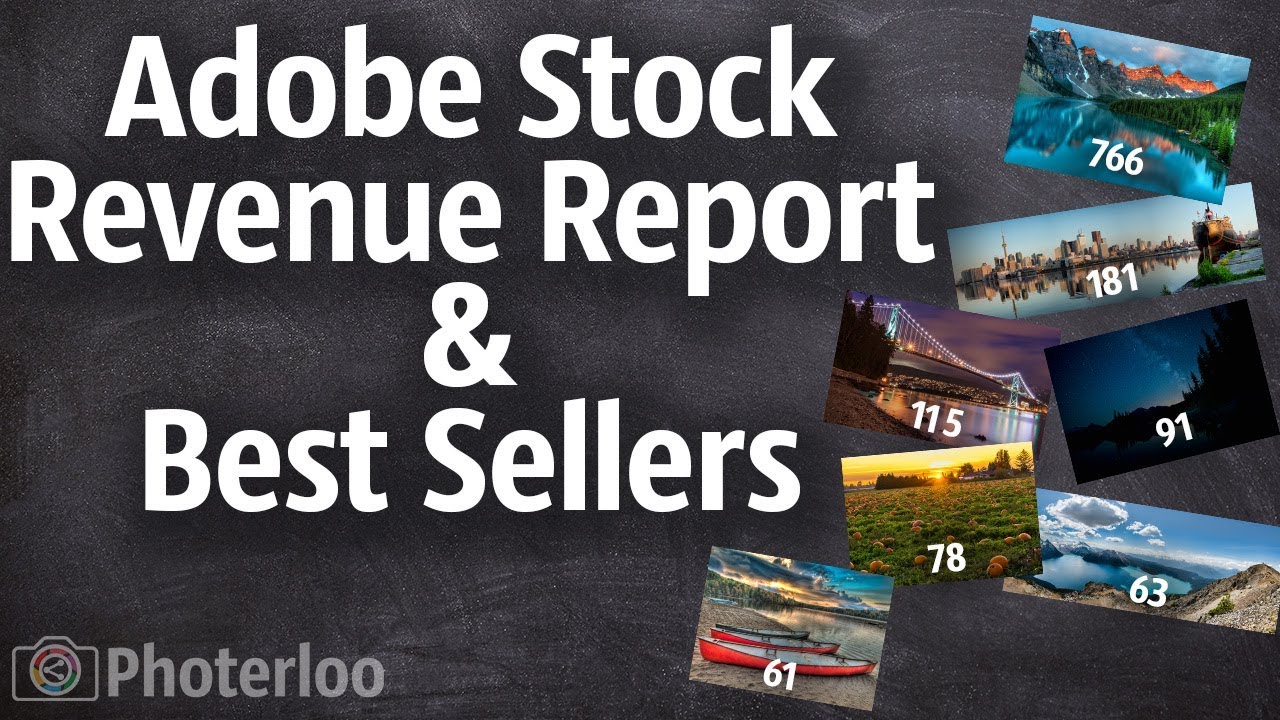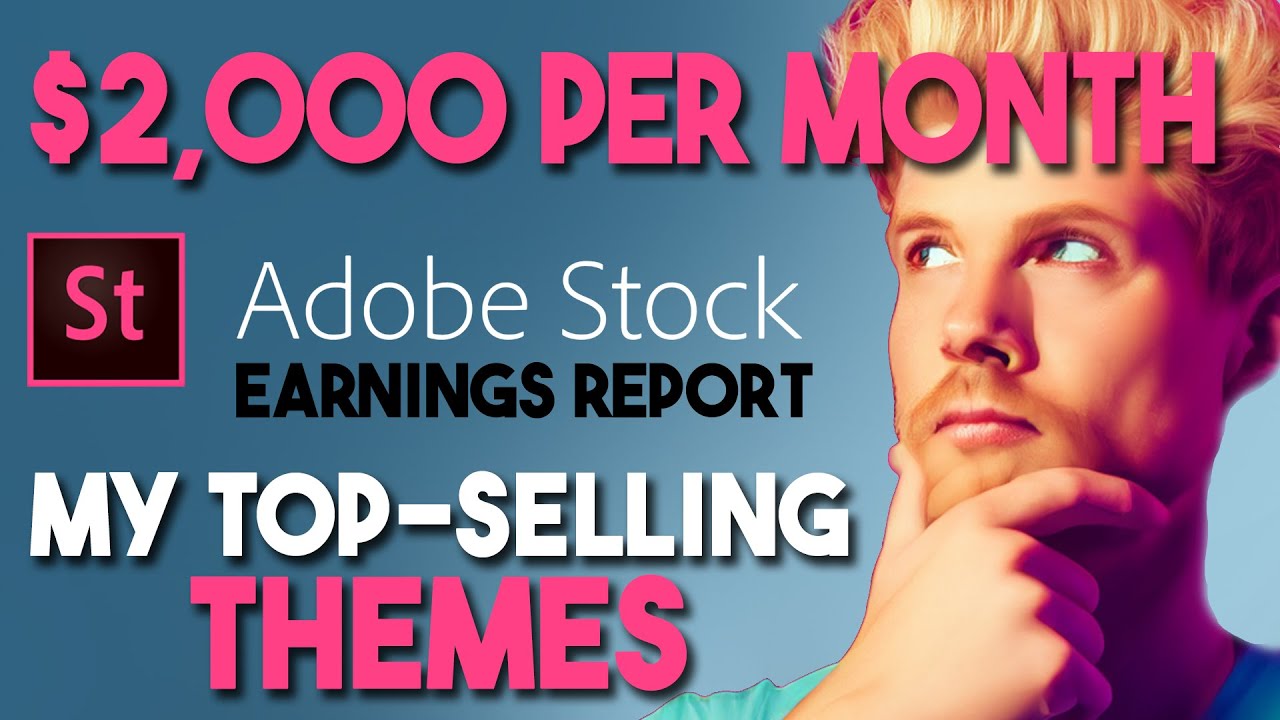Have you ever snapped a picture and thought to yourself, "This could be worth something"? If so, you're not alone! Many photographers, from amateurs to seasoned pros, are diving into the world of stock photography, and platforms like Adobe Stock are making it easier than ever. Selling stock photos can be a lucrative side hustle or even a full-time gig if you play your cards right. With the ever-growing demand for high-quality images across various industries, there’s a real opportunity to monetize your creativity. But before you dive in, let’s explore what selling stock photos entails.
Understanding the Stock Photo Market

The stock photo market has exploded in recent years, driven by the increasing need for visuals in marketing, advertising, and online content creation. Here's what you need to know to navigate this dynamic landscape:
- Diverse Buyers: Every day, countless businesses, bloggers, and even individuals are in search of appealing visuals. Whether it’s for social media posts, website banners, or print materials, the demand for stock photos is relentless.
- Variety of Themes: From abstract concepts to real-life situations, the range of subjects is vast. Photos that represent diversity, lifestyle, technology, and nature tend to sell particularly well.
- Quality Over Quantity: High-quality images are a must. Light, composition, and technique matter! Buyers are less likely to spend money on subpar images, so invest time in honing your photography skills.
- Licensing Knowledge: Understanding the types of licenses (royalty-free vs. rights-managed) is crucial for both photographers and buyers. This knowledge will help you choose the best path for your images.
- Pricing Strategies: Stock photos typically have varying price points. Consider your experience level and the uniqueness of your photographs when determining how to price your work.
As you dive deeper into the stock photo world, it's essential to keep an eye on trends and adapt to the changing needs of buyers. With the right approach, selling stock photos could prove nicely rewarding!
Also Read This: Try This Free Shutterstock Image Downloader Online
Factors Influencing Your Earnings

When you're diving into the world of stock photography, several factors can significantly affect how much you earn. Understanding these elements can help you optimize your portfolio and maximize your income potential. Let’s break these down:
- Quality of Your Images: This is perhaps the most crucial factor. High-quality, visually appealing images that are well-composed and expertly edited tend to attract buyers. Invest time in honing your photography skills and using the right equipment.
- Trends in Stock Photography: The market is constantly evolving, so keeping an eye on current trends is essential. For example, during certain seasons or events, specific themes might be more popular, like holidays or social movements.
- Keywording and Metadata: Properly tagging your images with relevant keywords ensures they show up in search results. The more relevant your tags, the higher the chances that potential buyers will find your work.
- Exclusivity: Offering exclusive content on Adobe Stock can be a double-edged sword. While it may limit your reach, exclusive images often command higher prices. Assess whether this strategy fits your business model.
- Market Saturation: Some niches are highly saturated, meaning many photographers are competing for attention. Finding a unique angle or an underrepresented category can help you stand out and boost earnings.
- The Number of Downloads: Naturally, the more downloads you have, the higher your earnings. Focus on marketing your portfolio to drive traffic and increase visibility.
Also Read This: Guide to Downloading Your Adobe Stock Images
How Adobe Stock Works

If you’re new to selling stock photos, understanding how Adobe Stock operates is key to getting started on the right foot. The platform provides a user-friendly interface for both photographers and buyers, creating a streamlined experience for everyone involved. Here’s a breakdown of the process:
- Sign Up and Submit Your Portfolio: First, you’ll need to create an Adobe Stock account and submit your best work for approval. Adobe sets quality standards to maintain high-quality content on their platform.
- Keywording and Categorization: After your images are approved, you need to tag them with relevant keywords and place them in appropriate categories. This step is crucial for visibility in searches.
- Selling Your Work: Once your images are uploaded, they become available for sale. Adobe Stock operates on a commission model, where you earn a percentage from each sale. The more appealing your images, the more potential sales you may achieve.
- Tracking Sales: Adobe offers an intuitive dashboard where you can track your downloads, earnings, and trends. Keep an eye on this data to understand which images perform best and how to tweak your strategy.
- Payouts: Payments are typically made monthly, and you’ll receive your earnings via PayPal or bank transfer once you reach a minimum payout threshold. Staying updated on this process ensures your finances remain in order.
By understanding how Adobe Stock operates, you can navigate the platform more effectively and position your work for greater success!
Also Read This: How to Upload Video on Behance and Enhance Your Portfolio
Maximizing Your Profitability

When it comes to selling stock photos on Adobe, the key to boosting your earnings lies in strategic planning and smart choices. Here are some effective ways you can maximize profitability:
- Quality Over Quantity: It might be tempting to upload hundreds of photos, but high-quality images tend to sell better. Focus on providing well-composed, high-resolution shots that are visually appealing.
- Utilize Keywords Wisely: Proper tagging is essential. Use relevant keywords that potential buyers might search for. Think like a buyer when selecting your tags—what terms would you use?
- Diversify Your Portfolio: Don’t just stick to one type of photography. Explore various categories like lifestyle, business, nature, and technology. A varied portfolio attracts a broader audience.
- Stay on Trend: Keep an eye on photography trends or seasonal themes. Whether it's holiday imagery or trending lifestyle shots, timely content can lead to higher sales.
- Regular Uploads: Consistency is critical. Regularly adding new photos keeps your portfolio fresh and encourages buyers to revisit your collection.
Additionally, engage with the Adobe Stock community and learn from other successful photographers. Networking can lead to collaborative projects that enhance your visibility and profitability!
Also Read This: The Top Camera Accessories for Taking Your Photography to the Next Level
Success Stories from Stock Photo Sellers
Many photographers have turned their passion into a lucrative income by selling stock photos on Adobe. Here are a few inspiring success stories:
| Name | Background | Earnings |
|---|---|---|
| Jane Doe | A former teacher with a love for nature photography. | $1,000/month from stock photo sales. |
| John Smith | A freelance graphic designer who started selling his own designs. | $5,000 in the first year. |
| Emily Chen | A travel enthusiast showcasing her adventures through photography. | $2,500/month, funding her travels. |
These individuals not only found a way to monetize their creative skills but also reported enhanced visibility and opportunities within the industry. They emphasize the importance of persistence, continual learning, and passion. If they can do it, so can you!
Potential Earnings from Selling Stock Photos on Adobe
Selling stock photos has become an attractive way for photographers and creatives to monetize their work. One of the leading platforms for this is Adobe Stock, which connects millions of users with high-quality images. Understanding the potential earnings from selling your stock photos on Adobe can help you decide whether to dive into this lucrative market.
Adobe Stock operates on a contributor model, allowing photographers to upload their images to be sold to users and businesses seeking quality visuals. Here are some factors that can influence your earnings:
- Commission Rate: Adobe Stock pays contributors 33% commission on each sale. This is a competitive rate compared to other stock photo platforms.
- Image Quality: High-quality, unique, and niche images tend to sell better, leading to increased earnings.
- Volume of Sales: The more images you have available, the higher the chances of making sales. Contributors often report that a larger portfolio can lead to passive income.
- Licensing Model: Adobe offers multiple licensing options, including standard and enhanced licenses, which can impact how much you earn per image.
To give you a better idea of potential earnings, here’s a simple table showcasing typical earnings based on sales:
| Number of Sales | Approximate Earnings |
|---|---|
| 10 | $33 |
| 100 | $330 |
| 1,000 | $3,300 |
| 10,000 | $33,000 |
In addition to direct sales, frequent contributors may receive bonuses and rewards from Adobe Stock, further enhancing their earnings potential.
Conclusion and Final Thoughts: Selling stock photos on Adobe Stock can be a rewarding venture, particularly for those who invest time in creating high-quality content and managing a diverse portfolio. By understanding the earnings potential and factors influencing sales, photographers can better navigate this market for financial success.
 admin
admin








